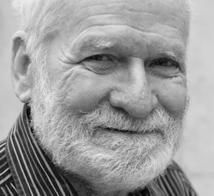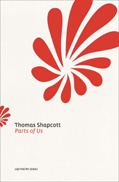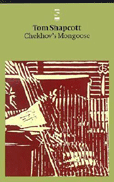Thomas Shapcott – September 26 2021
International Day of Older Persons – October 1
 Thomas is a poet, novelist, playwright, editor, librettist, short story writer and teacher. Born in 1935 into a family of Scottish and Cornish descent, Thomas is the younger of twins, his brother being born on the previous day. (His non-fiction publications include Twins in the Family: Interviews with Australian Twins.) Thomas left school at the age of 15 to work in his father’s accountancy business and after gaining his own accountancy degree he established an accountancy firm specialising in taxation advice for writers, artists and academics. He also now holds a Bachelor of Arts degree and two honorary Doctorates. Thomas has been Director of the Literature Board of the Australia Council, Executive Director of the National Book Council, and was the inaugural Professor of Creative Writing at the University of Adelaide. He has published 15 volumes of poetry (including A Taste of Salt Water: poems, with a Dedication to Charles and Barbara Blackman and front cover from a painting by Charles Blackman, of whom he wrote a biographical study, Charles Blackman: The Art Of Charles Blackman); nine novels (including two YA); three short story collections; and over 20 libretti, such as Summer carol: opera in one act and Orpheus Beach (music by Colin Brumby for both), reflecting his first artistic impulse which was to be a composer. Thomas was made an Officer of the Order of Australia 1989 for services to literature and in 2003, the Thomas Shapcott Poetry Prize for an unpublished poetry manuscript by a Queensland-based author was established in his honour.
Thomas is a poet, novelist, playwright, editor, librettist, short story writer and teacher. Born in 1935 into a family of Scottish and Cornish descent, Thomas is the younger of twins, his brother being born on the previous day. (His non-fiction publications include Twins in the Family: Interviews with Australian Twins.) Thomas left school at the age of 15 to work in his father’s accountancy business and after gaining his own accountancy degree he established an accountancy firm specialising in taxation advice for writers, artists and academics. He also now holds a Bachelor of Arts degree and two honorary Doctorates. Thomas has been Director of the Literature Board of the Australia Council, Executive Director of the National Book Council, and was the inaugural Professor of Creative Writing at the University of Adelaide. He has published 15 volumes of poetry (including A Taste of Salt Water: poems, with a Dedication to Charles and Barbara Blackman and front cover from a painting by Charles Blackman, of whom he wrote a biographical study, Charles Blackman: The Art Of Charles Blackman); nine novels (including two YA); three short story collections; and over 20 libretti, such as Summer carol: opera in one act and Orpheus Beach (music by Colin Brumby for both), reflecting his first artistic impulse which was to be a composer. Thomas was made an Officer of the Order of Australia 1989 for services to literature and in 2003, the Thomas Shapcott Poetry Prize for an unpublished poetry manuscript by a Queensland-based author was established in his honour.
 Parts of Us
Parts of Us
University of Queensland Press, 2010; ISBN 9780702237690
Parts of Us holds in balance a quiet maturity with a vital energy. Ranging from sonnet sequences to long lyrical meditations, dramatic monologues to more confessional works, these poems are imbued with verve, curiosity and elegant inquiry. The collection is marked by an almost self-elegiac strain, an unflinching imagining of one’s own death, and a sense too of love fading, which serves as a brave and powerful corrective to the idealisation of some love poetry written by men about women. In light of these themes, the lively ‘Adelaide Lunch Sonnets’ acquire additional weight and resonance. These poems are as sensual as figs that, soft as flesh, burst ‘to reveal that secret place where taste is lost in all the rich darkness of their heart’.
 Chekhov’s Mongoose
Chekhov’s Mongoose
Salt Publishing, 2000; ISBN 9780646395432
‘This, [Thomas Shapcott’s] 15th collection, is rich, mannered and varied, full of energy that comes from being conscious of the hourglass, and loving the pressure of poetic forms. He is always sensual, intelligent, pushy. What seems to have been emerging in recent poems is an upping of the stakes on self-consciousness. The title poem is a sestina, vigorously done. It is high art to get octane into old forms. One of Shapcott’s strongest collections.’ – Barry Hill
